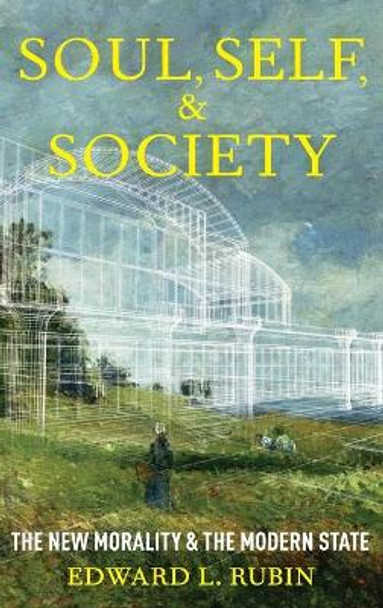Given the complexity of human societies, the idea that a society's moral norms track the stages of its historical development is both controversial and difficult to demonstrate. Yet in The New Morality, Edward Rubin, an eminent scholar of the modern state, offers an ambitious account of how current moral norms are inherently connected to the type of state that currently dominates the developed world. He contends that the moral system of 'self-fulfillment'--the idea that people are entitled to the most pleasurable and meaningful life possible, without unnecessary constraints--that has emerged in the last two centuries parallels the rise of the modern administrate state. The modern state's functions--education, unemployment relief, health, and environmental protection, among others--are designed to support that moral system. However, just as the rise of the administrative state generated tensions as it replaced an older state model, self-fulfillment has created stresses because it has gradually supplanted the pre-existing moral code: the religiously based morality of higher purposes, which demanded that people serve God and king. This moral system tracked the rise of centralizing monarchies in Western Europe, and that system in turn replaced a morality of 'honor,' which dominated in the pre-absolutist era where governmental power was private in orientation and the state was weak. Rubin traces how paired state-moral system models have emerged and withered over time, paying close attention to the stresses that emerge when a new order replaces an existing one. He provides a close analysis of the components of the morality of self-fulfillment, exploring sex, pleasure, friendship, hobbies, careers, voting behavior and public obligations. Our entire system of government, he argues, is bound up in this morality, and its primary purpose is to further it. A sweeping, big-idea book in the vein of Richard Sennett's The Fall of Public Man and David Riesman's The Lonely Crowd, The New Morality promises to reshape our understanding of the ultimate aims of modern politics and society.
About the AuthorEdward Rubin grew up in Brooklyn, N.Y., received his undergraduate degree from Princeton and his law degree from Yale. He clerked on the Second Circuit, briefly practiced entertainment law, and joined the Berkeley Law School faculty in 1982. He move to Penn Law School in 1988 and then to Vanderbilt Law School in 2005, where he served as Dean. As an educator, Rubin has championed curricular reform; as a scholar, he has authored numerous books, articles and edited volume, many devoted to the reform and modernization of legal institutions.
ReviewsWithout doubt, Ed Rubin has written a truly inspirational book that provides lots food for thought and raises important questions. * Rob van Geste, Legal Studies *
Rubin has written an original and provocative book. Indeed, it is safe to say that there is no other account that argues for a "co-causal" link between the separation of the legislature from the executive and relaxation of the strictures against nonmarital sexuality. * June Carbone, Law & Social Inquiry *
Book InformationISBN 9780199348657
Author Edward RubinFormat Hardback
Page Count 502
Imprint Oxford University Press IncPublisher Oxford University Press Inc
Weight(grams) 776g
Dimensions(mm) 177mm * 238mm * 36mm







